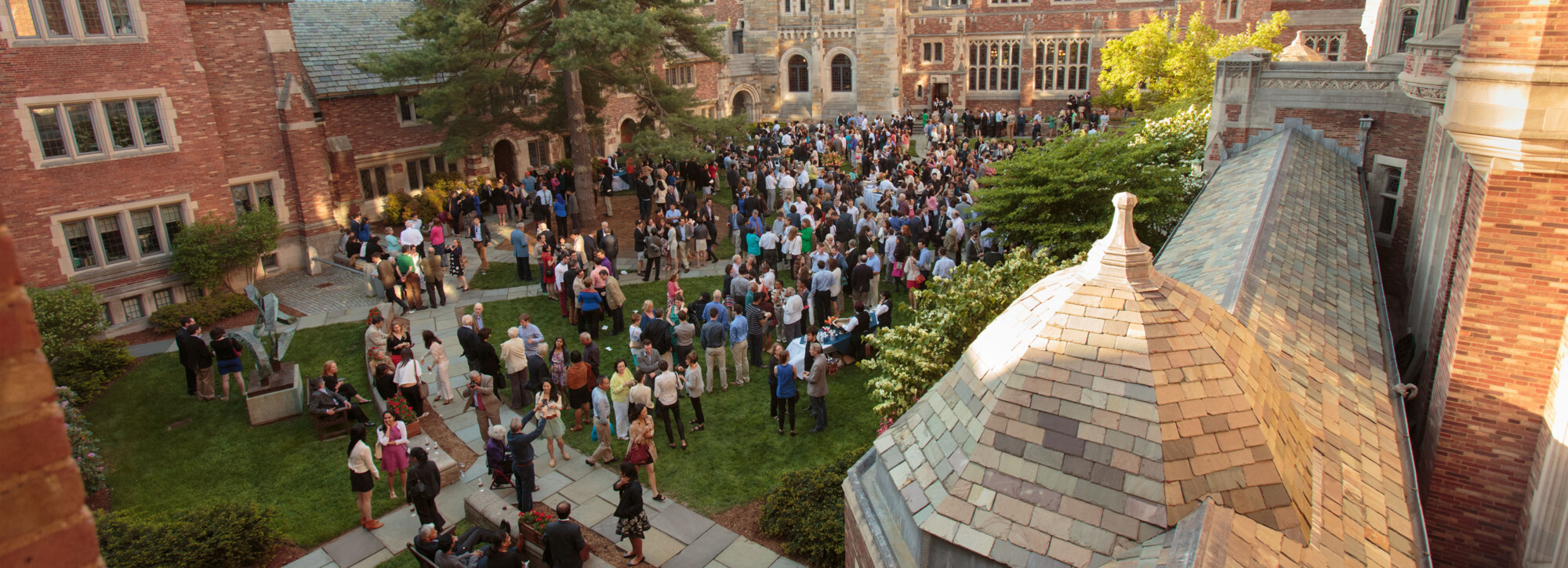
Several leadership experiences stand out in Jason Hug’s mind when he thinks back over his five years as a U.S. Army intelligence officer.
The first was in 2019, when he was permanently stationed in Germany and had the opportunity to participate in training exercises with NATO and European Union partners, including the United Kingdom, Estonia, and Finland. Finland wasn’t yet a member of NATO, and Russia hadn’t yet invaded Ukraine.
“There was a clear awareness of the potential for Russian aggression in Europe, which underscored the importance of strengthening alliances to deter such activity,” said Hug. “Interacting with our allies and partners on the ground gave me an understanding of the complexities of building those relationships.”
In 2020, Hug had the opportunity to deploy with a special operations unit to Afghanistan. There, the ability to overcome cultural barriers again proved essential.
In Afghanistan, Hug worked with another U.S. Army officer as a co-team lead for a group of U.S. and Afghan personnel and helped manage a team of linguists. It was critical, he said, “to not just be technically proficient, but also able to see the bigger picture and communicate a vision of the future and where [we] needed to go to achieve mission success. Holding those things in concert is a challenging aspect of leadership in a deployed setting.”
After returning to Germany, Hug worked as a platoon leader for a year. The 32 soldiers under his supervision all had different specialties in intelligence. “My job in that setting was to help the whole team see that their individual specialty was necessary for the platoon to be successful,” said Hug. “You become a conduit to helping the whole team see how they’re contributing to the larger mission.”
Hug is a joint degree student at Yale Law School and the Yale Jackson School of Global Affairs. Part of the reason he chose to study in New Haven after his honorable discharge from the Army, Hug said, was the visible veteran community on campus.
“It’s always nice to see [veterans included in] the By the Numbers feature,” he said. “These are small but key signals that the community values that perspective on campus. It’s one thing to have that on the website, but in practice, I felt nothing but welcomed.”
Leadership, kindness, and an appreciation for different viewpoints have been guiding values for Hug throughout his life.

A native of rural Ohio, he spent his high school years captaining the most successful football teams in his town’s history. He was drawn to studying at the U.S. Military Academy at West Point because of its curricular emphasis on leadership, and the fact that it admits from all 50 states and internationally.
“I wanted to get out of my northwest Ohio bubble,” he said.
West Point helped hone Hug’s interest in national security and international law. The Academy’s focus on collaboration — an unofficial motto at West Point is “cooperate and graduate” — was a constant refrain during Hug’s five years in the military. And it’s a constant now, at Yale.
Hug said he sees echoes of West Point at Yale Law School: any sense of competition is dwarfed by larger shared values of service and respect.
“There is a lot of emphasis on community and on collaboration at Yale Law School but also, as Dean Gerken puts it, on being kind and humble,” he said. “Your colleagues will serve alongside you, and you’re all working toward the same goal — ensuring the rule of law and fighting for justice.”
Last year, Hug gave a lecture to a class at the Jackson School that referred to his military experience. Afterward, students were asked whether they knew someone serving in the military.
“In a room of 80 people, maybe 2 raised their hands,” said Hug. “It was good that I was able to be there in that space and answer some of those questions. I would highlight that as an example of where a military viewpoint was very welcome.”
At Yale Law School, Hug is currently focused on international law and national security law, even as he’s open to exploring other options for the future. But one thing is certain: he’ll always look back on his time in the military with good memories, largely thanks to the people he was able to serve alongside.
“I hope it’s something that I’ll always use as a foundation, throughout my legal career,” he said.
This is one of a series on the growing military community at Yale Law School, where veterans and service members comprise 9% of the class of 2027.
